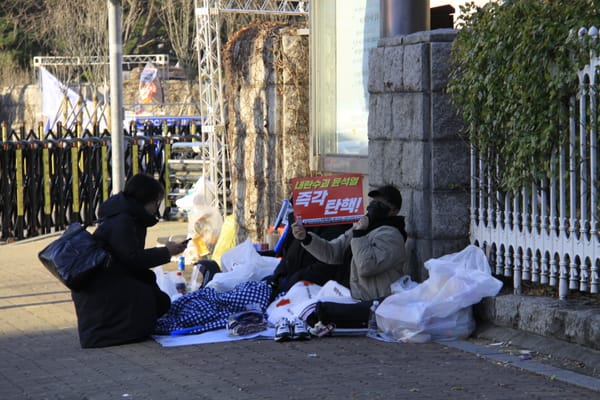Asia Undercovered #15 - Geopolitics, Elections and...Mangoes!
Lots of undercovered news this past week, as 2019 in Asia gets off to a busy start while the US media obsesses over a bunch of burgers.
A quick note – I’ve changed the newsletter a bit, adding sections on regional geopolitics, and elections. The latter will be a busy section this year, with elections coming in several Asian countries.
Like the new format? Is there a story I missed? Respond to this email and let me know.
– Nithin
5th Anniversary of China arresting Ilham Tohti, Uyghur Scholar
This past Tuesday marked five years since the arrest and subsequent jailing of renowned scholar Ilham Tohti. Tohti was charged with separatism, but in reality he was working to promote reconciliation between Han Chinese and Uyghurs, and even provided recommendations to the government on how to improve the situation in East Turkestan (Chinese Xinjiang).
The arrest foretold a dark future for China under the rule of just-appointed President Xi Jingping, as we well know today. Pete Irwin writes for Hong Kong Free Press about how Tohti’s ideas on inter-ethnic relations were an alternate path forward for the Chinese Communist Party.
Undercovered last week
As someone who has been in Indonesia on-and-off sine 2011, it has been shocking to see the rapid rise of anti-LGBT rhetoric in the country. This piece by Suwandi in SEAPA gives a detailed overview of just how bad it’s gotten for sexual minorities in Southeast Asia’s largest country.
South Korea wants to increase birthrates to avoid a demographic crisis. But unlike nearby Japan, or, especially, China, they’re taking a different approach – promoting gender equality (Reuters).
Asian Geopolitics
Since the election of Rodrigo Duterte in 2016, the Philippines has moved closer to neighboring China. Despite this, investment fro the latter has been slow to arrive in the archipelago. Statford Worldview provides an analysis of the present and future relationship between the two countries.
While the relationship between the western countries and China seems to be getting ever worse, two historical rivals – India and Japan – are rebuilding ties with Beijing ongoing despite territorial and historical disputes. Rupakjyoti Borah explains what all these countries have to gain in Global Asia.
Last week was the bi-annual ASEAN summit. The regional entity, once dreamed of as a European Union for Southeast Asia, has failed to achieve most of its once lofty goals. The region continues to be divided on important issues like the South China Sea, and increasing authoritarianism is limiting opportunities for growth on issues like human rights or press freedom. Looking at this, Mathew Davies asks, why does the region still bother with ASEAN? – and comes up with some surprising answers (East Asia Forum).
Pakistan is one of the most important recipient countries of Chinese Belt and Road Money. Kashmir, the contested region, will play a key role in Chinese investment. Could this relationship be pivoted to help promote peace, asks Athar Parvaiz? (The Third Pole).
Election Updates
The stakes in India’s election will be high. To understand why, read Sumit Ganguly’s piece on how India under Modi has been devastating for plurarism, and why a reelection could make things much, much worse (Journal of Democracy)
Indonesia’s presidential challenger, Prabowo Subianto, made a national address highlighting the key issues of this campaign. Of note: strong economic populist rhetoric, appeals to nationalism, and drops of Islamic religious rhetoric.
And, surprise! Thailand election is going to be delayed. Again.
On a tastier note: Mangoes!
Did you know about the amazing role of Pakistani mangoes, gifted to Mao Zedong, during the Cultural Revolution in China? A fascinating tale of fruit by Mehreen Jamal for Dawn Magazine.
Until next week,
Nithin Coca
Like the newsletter? Help me get the word out by sharing Asia Undercovered on Facebook, Twitter, Linked, or forward this email to your friends and colleagues.
Asia Undercovered: Journalist Nithin Coca's weekly roundup of the news, events, trends and people changing Asia, but not getting enough attention in the US media.



